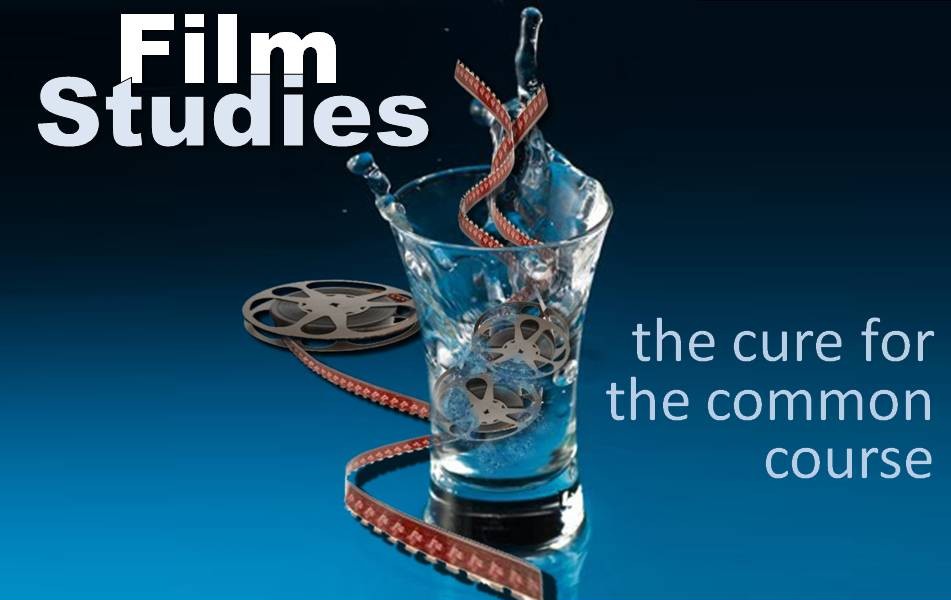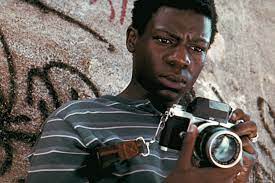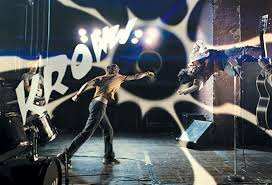FILM2900: Introduction to Film Studies (FC: HU)
Instructor: Amanda Ann Klein
Screenings: stream on your own (titles available through Joyner and/or streaming platforms)
This class is offered at 2 different times, taught by the same instructor:
FILM 2900.001 is Tuesday & Thursday, 9:30-10:45 am
FILM 2900.002 is Tuesday & Thursday, 12:30pm-1:45pm
The goal of this course, as its title suggests, is to “introduce” you to the broad field of film studies, including formal analysis, genre studies, film history and theory. By the end of the semester you will have the basic critical tools necessary for understanding and analyzing the language of motion pictures. Ideally, this course will enable you to not only gain a richer understanding of the films you watch but also the television shows, You Tube videos, commercials, and other media you encounter on a daily basis.
Screenings: City of God (2002, Fernando Meirelles & Kátia Lund), Do the Right Thing (1989, Spike Lee), The Virgin Suicides (1999, Sofia Coppola), Bicycle Thieves (1949, Vittorio de Sica), The Queen of Versailles (2012, Lauren Greenfield)
NO TEXTBOOK REQUIRED
****FILM2900 is a required course for the Film Studies minor core****
GLST 2520: Special Topics in Global Cinema (Latin American Culture Through Cinema) (FC: HU, GD)
Instructor: Dr. Jennifer M. Valko
Times offered: DE asynchronous
Screenings: stream on your own (titles available through Joyner and/or streaming platforms)
Earn Humanities and Global Diversity credits as you explore a variety of Latin American cultural obsessions like soccer, music, dance, and politics. Learn the basics to analyze films and film genres like drama, comedy, sci-fi, and documentary. Explore the major Latin American Film industries. Become exposed to the concept of Latin America as a geopolitical region as well as the different social, cultural, and political beliefs and values that have shaped its cinematic traditions from the formative years of the 1930s to the present. Consider the tension between creating domestic (Latin American) cinema while competing with Hollywood in the past and in the present. Discuss issues related to history, social class, immigration, gender, and ethnicity in Latin America. Emphasis placed on contemporary films. No knowledge of Spanish necessary! All films in Spanish with English subtitles.
Screenings: Sleep Dealer (2008, Rivera), The Milk of Sorrow (2009, Llosa), Chico and Rita (2010, Trueba, Mariscal & Errando), The Liberator (2013, Arvelo), Juan of the Dead (2011, Brugués), Cantinflas (2014, del Amo), Wild Tales (2014, Szifrón), Embrace of the Serpent (2015, Guerra) Pelé: Birth of a Legend (2016, Zimbalist), A Fantastic Woman (2017, Lelio), Residente (2017, Pérez Joglar) & Roma, (2018, Cuarón). All films in Spanish with English subtitles.
****GLST2520 counts towards the Multicultural/Transnational/International Film Cognate for the Spring 2023 semester****
FILM 3901-001: American and International Film History, Part II (FC: GD)
Instructor: Dr. Anna Froula
Times offered: TR 11:00-12:15
Screenings: stream on your own (titles available through Joyner and/or streaming platforms)
This course is a broad survey of the major films, genres, regulatory bodies, and economic structures that define American and international cinema from World War II through the present. The course addresses the cultural, industrial, and aesthetic history of these films, tracking the development of US cinema and international through the disintegration of the studio system and Hays Code to rise of both independent and corporate blockbuster film. While the major concern of this course is to understand these films in terms of their historical context, we will also be addressing specific formal, narrative and rhetorical choices made by the individual films and filmmakers.
Screenings: Sands of Iwo Jima (Alan Dwan, 1949), Roshomon (Akira Kurosawa, 1956), La Battaglia di Algeri (Gillo Pontecorvo,1966), Far From Vietnam (Chris Marker, Jean-Luc Godard, Alain Resnais, Agnès Varda, Joris Ivens, William Klein, Claude Lelouch, 1967), Super Fly (Gordon Parks Jr, 1972), First Blood (Ted Kotcheff, 1982), Better off Dead (Steve Holland, 1985), Run Lola Run (Tom Twyker, 1998), 11’09”01 (Alejandro González Iñárritu, 2002), Persepolis (Marjane Satrapi, 2007), Atlantics (Mati Diop, 2019), Everything, Everywhere, All at Once (The Daniels, 2022)
***FILM3901 counts toward the Film History Cognate for the Film Studies Minor***
FILM 4920/ENGL 5350-001: Cinematic Identities: Underexposed Voices (DD, WI)
Instructor: Dr. Anna Froula
Times offered: MW 2:00-3:15
Screenings: stream on your own (titles available through Joyner and/or streaming platforms)
Beginning with the documentary This Changes Everything (2018), this seminar explores the different ways that American cinema has attempted to represent women. Students will watch films—and read related theoretical and historical texts—that explore the way differences in age, ethnicity, culture, national origin, ability, religion, body type, sexual orientation, and gender identity are constructed in a particular historical moment and how that translates to the cinematic image of American women. Students are expected to write and think.
Screenings: This Changes Everything (Geena Davis, 2018), Easy A (Will Gluck, 2010), Pretty Woman (Garry Marshall, 1990), Tangerine (Sean Baker, 2015), Promising Young Woman (Emerald Fennell, 2020), I Like It Like That (Darnell Martin, 1994), Pariah (Dee Rees, 2011), Children of a Lesser God (Ronda Haines, 1986), Oceans Eight (Gary Ross, 2018), Hidden Figures (Theodore Melfi, 2017), Reservation Dogs episodes (Hulu, 2021)
****FILM4920 counts towards the Film Theory cognate for the Film Studies minor****
FILM 4985: Film Studies Capstone: Teenpics and American Youth Culture (WI)
Instructor: Amanda Ann Klein
Times offered: Th 2-3:15 pm
Screenings: stream on your own (titles available through Joyner and/or streaming platforms)
This course focuses on the broad category of “teenpics,” or films made for and starring teenagers or young adults. We begin with Hollywood’s first attempts to court the youth market in the 1950s and conclude with the most current manifestations of the teenpic. Along the way we will discuss American teenagers as a subculture, how the film industry exploits the youth market, and how teenagers consume their own exploitation. We will touch on key moments in the history of youth culture—including the rock n’ roll craze of the 50s, the counterculture of the 60s, the disillusionment of Generation X, the gangbanger “crises” of the 90s, the hipster of the new millennium, and whatever it is that Gen Z is doing—and how these cultural moments were translated into films.
Note: Although this course serves as the capstone for the Film Studies minor, it is open to non-minors who have taken FILM2900 or another FILM class.
Screenings: Rock Around the Clock (1956, Fred F. Sears), Wild in the Streets (1968, Barry Shear), Krush Groove (1985, Michael Shultz), Krush Groove (1985, Michael Shultz), Boyz N the Hood (1991, John Singleton), The Fast and the Furious (2001, Rob Cohen), But I’m a Cheerleader (1999, Jaime Babbit), Scott Pilgrim vs the World (2010, Edgar Wright)
NO TEXTBOOK REQUIRED
***FILM4985 is a required class for the Film Studies minor ***





